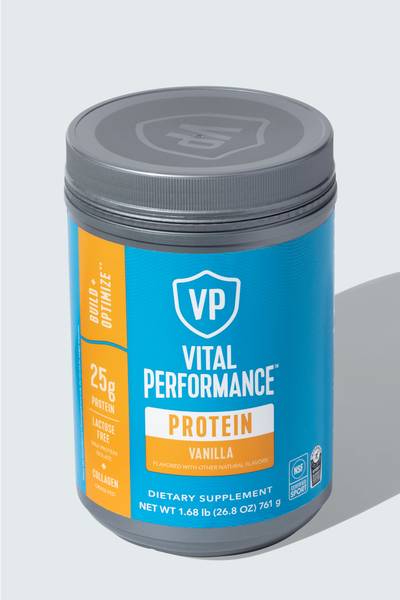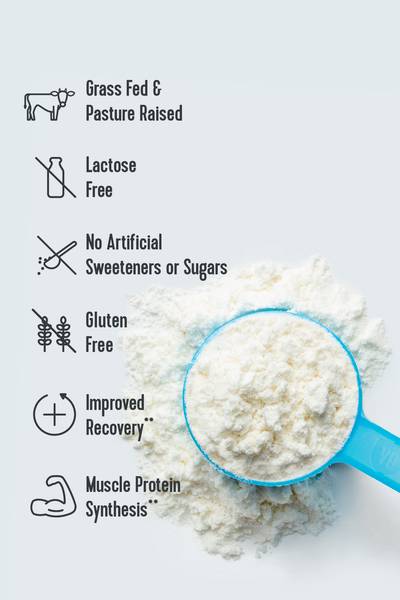Protein is the major building block of our bodies. It is the primary component of muscle and is essential for the formation of all cells. Protein is a powerhouse macronutrient not only for its muscle-building capabilities but also for the other roles it plays in our body, such as immune response and hormone regulation. Without enough protein, some of these functions can be compromised.
How Do You Get Enough Daily Protein?
Protein is the building block of every cell, made up of components called amino acids. Our body is able to make some of these amino acids but relies on others to come from our diet. The amino acids we rely on getting from our diet are called essential amino acids. The best way to know you are getting enough essential amino acids is to eat a wide variety of foods. Foods from the meat and dairy group contain all essential amino acids, but foods from the vegetable and grain group may not. If you rely heavily on plant proteins, then just make sure you are mixing it up. For example, rice and beans together have all essential amino acids, but individually they do not.
Related Articles
What Happens If You Don't Eat Enough Protein?
Too little protein may affect muscle growth and immunity, but too much protein can also be detrimental. Excessive protein intake can increase your chances of forming a kidney stone.** According to the Mayo Clinic, many Americans actually get too much protein.
To make sure you are getting an appropriate amount of protein you can calculate your needs.
The average adult needs 0.8g of protein per kilogram of body weight. If you are physically active, your needs may be higher, but this differs for the type of physical activity you are doing. For example, a football player that is weight lifting with the goal of building muscle is going to have higher protein needs than an endurance runner.
Another way to make sure you are getting an appropriate amount without the stress of counting how grams of protein per day is to aim to have a quarter of your plate at meals be from a protein source. For example, having chicken about the size and thickness of your palm is appropriate. If you rely on plant protein, good sources to reach for include soy, nuts, beans or lentils.
If you notice you are getting hungry between meals quickly, it may be a sign you are not eating enough protein or the correct balance of macronutrients in your meals and snacks. For example, an apple and nut butter will fill you up longer and fuel your body more effectively than just an apple because of the added fat and protein content in the nut butter.
How Much Protein Do You Need To Build Muscle?
While protein amounts vary from person to person, you should also consider timing of protein intake when it comes to building and repairing muscle. According to the Mayo Clinic, it's best to consume 15–25g of protein at meals and in the early recovery phase (also known as the anabolic window) about 45 minutes to one hour after a workout. You can get this amount of protein from a banana, Greek yogurt, or Vital Performance™ Protein Bars.
What Foods Are High In Protein?
You should aim to eat proteins that are low in saturated fat. Lean beef will provide you with a high value type of protein as well as zinc, iron and choline. Some fish, such as salmon, is also good source of calcium and omega-3 fatty acids that can help with cardiovascular protection, joint function and eye and brain health.** Other examples of protein-rich foods to include in your diet are tofu, yogurt, eggs, beans, chicken, pork and cheese.
If you are unsure about the amount of protein you should be eating, consult your licensed healthcare professional. A registered dietitian would be able to assess your body’s protein needs and recommend specific meals and snacks that can help meet your needs and fuel your body.
Vital Note: We also recommend discussing your health goals with your licensed healthcare professional. They can best provide you with the diagnosis and treatment of any medical condition and assist you as well in deciding whether a dietary supplement will be a helpful addition to your regimen.
















